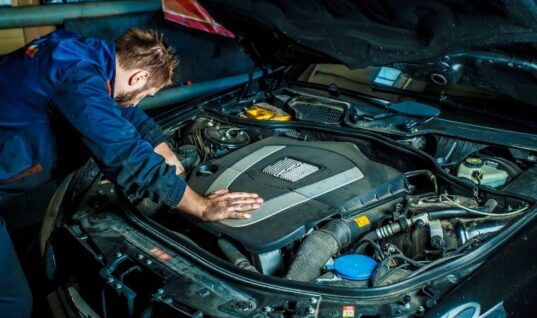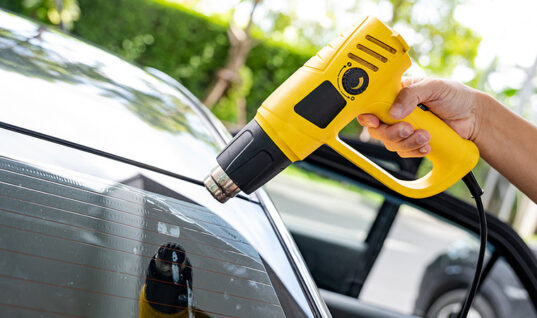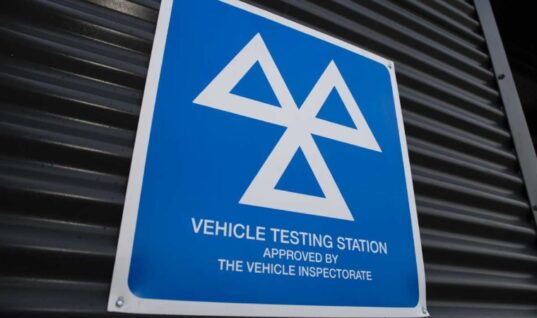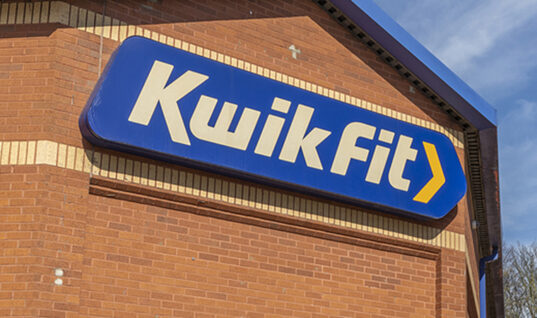Damage to the turbine is one of the primary reasons behind poor turbo performance and failure, with some form contamination usually responsible explains MAHLE Aftermarket.
Oil
If oil carbon enters the bearing case, it can result in any or all of the following: blue smoke, the loss of engine performance, the loss of engine oil, contamination of the charge-air cooler, clogged exhaust gas cleaning system and with adjustable turbochargers, blocked control mechanisms.
 These effects tend to be caused by poor quality engine oil, an overheating turbo or the immediate shut down of a hot engine.
These effects tend to be caused by poor quality engine oil, an overheating turbo or the immediate shut down of a hot engine.
It is vital the correct grade of oil as specified by the VM is used and the engine has run for at least a minute before shutting it down.
 Thoroughly clean the oil pan, and flush the oil following turbocharger damage to ensure that no foreign deposits enter the lubrication circuit and pay close attention to the necessary installation instructions and performance measures during engine tuning.
Thoroughly clean the oil pan, and flush the oil following turbocharger damage to ensure that no foreign deposits enter the lubrication circuit and pay close attention to the necessary installation instructions and performance measures during engine tuning.
Oil carbon deposits in the oil pipe can have similar effects to oil carbon found in the bearing case, but can also lead to excessive turbocharger noise and even failure.
Causes include an overdue oil change, incorrectly installed oil pipe or missing heat shield. Remedies include replacing the oil pipe and ensuring its correct installation and replacing the charge-air cooler and particulate filter if the turbocharger has needed replacement.
 Excessive oil consumption is often due to a problem with the oil return pipe, allowing oil into the turbine and compressor, which can affect the operation of the internal components and collect in the charge-air cooler.
Excessive oil consumption is often due to a problem with the oil return pipe, allowing oil into the turbine and compressor, which can affect the operation of the internal components and collect in the charge-air cooler.
Causes include constriction or a bend in the oil return pipe, the use of sealing compound rather than a gasket set, the failure to replace the engine connection when replacing the return pipe, or too much oil in the engine.
Technicians need to ensure that the return pipe is thoroughly cleaned if it is to be reused and a new gasket set must be used.
The turbo must also be replaced if any its internal components (VTG, by-pass, waste gate etc.) have become stiff.
Compressor related problems
 When it comes to the air intake, contamination of, or stress to, the compressor or compressor wheel will result in blue or black smoke, excessive noise and contamination in the charge-air cooler.
When it comes to the air intake, contamination of, or stress to, the compressor or compressor wheel will result in blue or black smoke, excessive noise and contamination in the charge-air cooler.
Causes include contamination entering the system from the crankcase vent, a build up of ice or a leak in the system from.
 Compressor wheel stress is caused by dirty or deficient oil to the bearing, an increase in exhaust back pressure or a clogged air filter.
Compressor wheel stress is caused by dirty or deficient oil to the bearing, an increase in exhaust back pressure or a clogged air filter.
Clean the entire intake system, replace the air filter with an OE replacement, clean or renew the crankcase vent and check the system for leaks.
 If fitted, the air compressor’s cylinder head must be dismantled and cleaned and flowing the replacement of the turbocharger and charge-air cooler, the mass air flow sensor must be checked.
If fitted, the air compressor’s cylinder head must be dismantled and cleaned and flowing the replacement of the turbocharger and charge-air cooler, the mass air flow sensor must be checked.
If the compressor wheel bearing is damaged, its clearance on the rotor shaft must be checked, oil flushed, a new OE filter fitted and the correct grade of engine oil.
For more information about MAHLE Aftermarket products, call 0845 688 5007 or click ‘More Details’ below.







